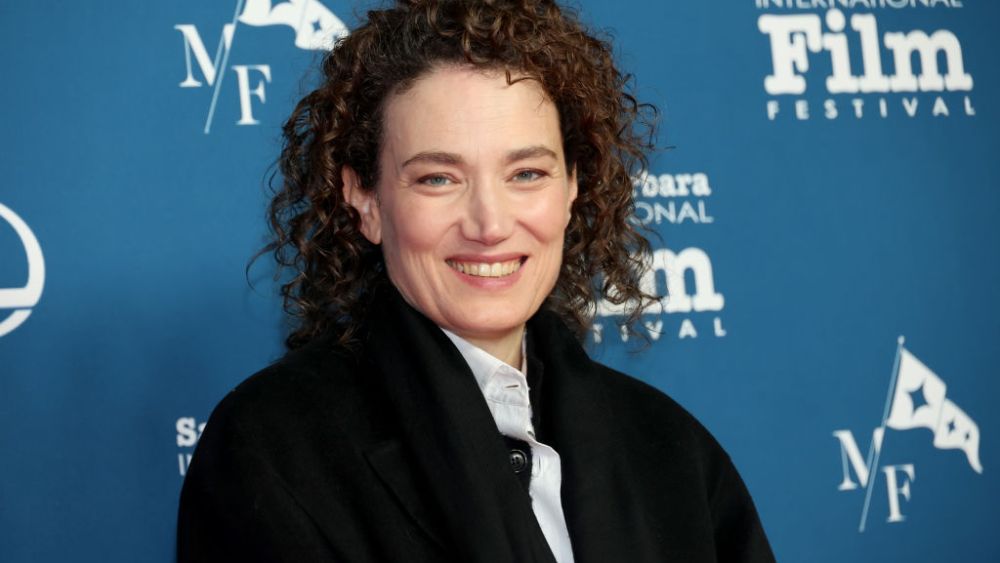Coralie Fargeat has always been a trailblazer, refusing to conform to industry norms.
As the writer, director, and producer of “The Substance,” a daring and visceral body horror film that captivated audiences at Cannes and earned five Academy Award nominations, Fargeat has forged her own unique path in the cinematic landscape.
From creating “Star Wars”-inspired short films in her youth to confronting industry skepticism regarding her film’s graphic content and social commentary, Fargeat has remained steadfast in her artistic vision. With “The Substance” receiving critical acclaim, particularly for Demi Moore’s powerful performance, Fargeat is now a focal point in Hollywood discussions.
In this episode of the Variety Awards Circuit Podcast, Fargeat shares insights about her film’s journey, Universal Pictures’ initial hesitations, her admiration for Moore, and her profound connection to the art of filmmaking.
Following its premiere at Cannes, “The Substance” was swiftly acquired by indie distributor Mubi, a pivotal move that helped preserve the film’s integrity. However, the path to its release was fraught with challenges. Universal Pictures, initially involved in the project, expressed significant concerns about the film’s extreme elements.
“To be honest, it was a bit of everything related to the excess — the gore, the violence,” Fargeat recalls. “I envisioned Sue pushing Elizabeth into the mirror not just once, but eight times. And the injections? Women often go to great lengths, injecting themselves in pursuit of happiness.”
The studio also raised objections to an unexpected detail — the inclusion of shrimp in a crucial lunch scene featuring Dennis Quaid.
“Out of all the elements in the film that I thought might provoke a reaction, the shrimp was the last thing I expected,” she says. “It was primarily the men who expressed discomfort, suggesting I tone it down. I believe it made them uneasy because it was depicted in an exaggerated manner.”
However, the most impactful criticism for Fargeat was aimed at the film’s monster — a grotesque yet vulnerable representation of its themes.
“The monster embodies the most vulnerable part of myself that I expressed in the film,” she explains. “When people rejected it, I experienced doubt. But then I thought, ‘Even monsters have to conform to beauty standards?’ That notion struck me as absurd. Why shouldn’t I be allowed to portray my vision of a monster? How many women have had the opportunity to define what a monster means to them?”
Despite the pressures from the industry, Fargeat stood her ground. “I chose to take the risk until the end, to trust myself,” she asserts. “If I don’t love [the monster], if I don’t accept it, who will?”
Much of the film’s emotional depth hinges on Demi Moore’s remarkable portrayal of Elizabeth Sparkle, a faded TV fitness icon who resorts to an experimental substance in a desperate bid to reclaim her youth, only to descend into a nightmarish reality.
For Fargeat, Moore was the ideal choice for the role, particularly in a pivotal scene where her character removes her makeup in front of a mirror. “She finally conveyed the violence I needed for that moment, making it the real twist of the movie.”
While “The Substance” solidifies Fargeat’s position as a significant force in contemporary horror and genre filmmaking, her earliest inspirations were rooted in a galaxy far, far away.
“As soon as we had a camera at home — a little camcorder for holiday filming — I began making short films,” she reminisces. “I even did a remake of ‘Star Wars’ using my toys, animating them frame by frame, with friends playing Ewoks or Stormtroopers.”
Those childhood experiments were more than mere play; they laid the groundwork for her career. “That was the best moment of my life,” she reflects. “I felt alive, powerful, and confident. I was 100% myself when I expressed my creativity through those short films.”
Now that Hollywood is focused on her, would Fargeat ever consider directing a “Star Wars” film?
“I would absolutely direct a ‘Star Wars’ movie if I could do it exactly how I envision it,” she laughs. “But I don’t think that’s likely to happen.”
With “The Substance,” Fargeat has crafted a film that defies expectations, demonstrating that trusting her instincts in the face of industry skepticism can yield remarkable results.
“There was a time when nearly everyone had lost faith in the film,” she admits. “In those moments, doubt creeps in. But I chose to remember why I made this movie in the first place — why I wanted it to be so violent, excessive, and over the top.”
With multiple Oscar nominations and Hollywood eager to see her next move, Fargeat is looking ahead. “I feel like I have the wind beneath my wings,” she says. “I’m excited for what comes next.”
Additionally, in this episode, “I’m Still Here” star Fernanda Torres shares her historic nomination, her love for her mother, and the type of film she aspires to create next. The roundtable also discusses the outcomes of the PGA, DGA, and the frontrunner status of Sean Baker’s “Anora,” and what implications this may have for the upcoming BAFTA and SAG Awards.
Variety Awards Circuit Podcast
Variety’s “Awards Circuit” podcast, hosted by Clayton Davis, Jazz Tangcay, Emily Longeretta, Jenelle Riley, and Michael Schneider, who also produces, serves as your go-to source for engaging discussions about the best in film and television. Each episode features interviews with top film and TV talent, lively debates about awards races, industry headlines, and much more. Subscribe via Apple Podcasts, Stitcher, Spotify, or wherever you get your podcasts.


























